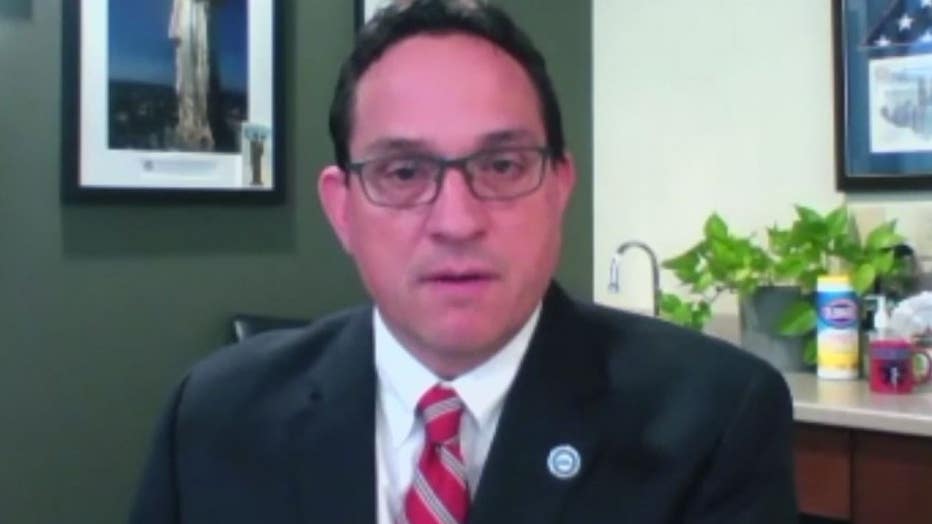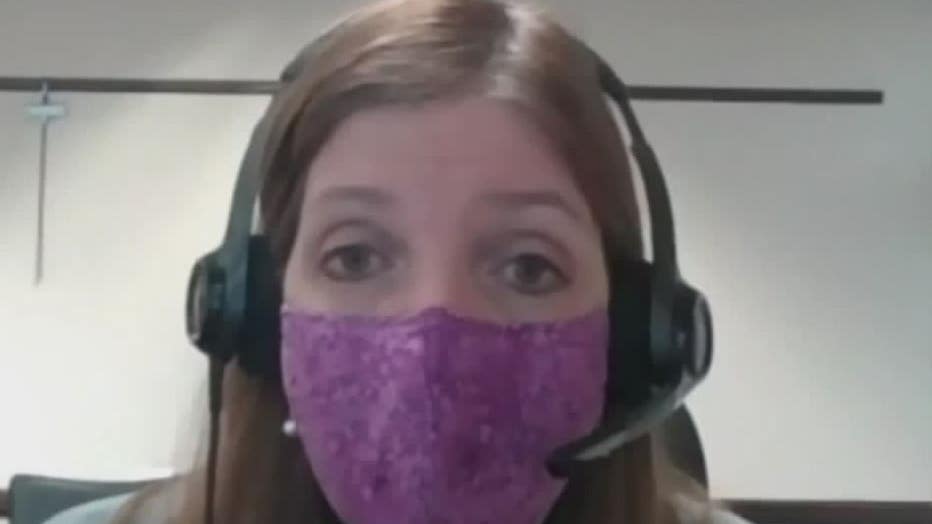DHS: 1 in 5 WI hospitals reports critical staffing shortage

DHS: 1 in 5 WI hospitals reports critical staffing shortage
The region's hospital leaders Thursday, Oct. 29 asking community members to help them help patients battling the coronavirus. This, as 51 more people died from COVID-19 since Wednesday, the second-highest daily total. Southeast Wisconsin's hospital leaders released a joint statement to the community Thursday in the wake of the current COVID-19 crisis, reminding people to wear a mask, wash their hands, watch their distance and get a flu shot.
MADISON, Wis. - The region's hospital leaders Thursday, Oct. 29 asking community members to help them help patients battling the coronavirus. This, as 51 more people died from COVID-19 since Wednesday, the second-highest daily total.
Southeast Wisconsin's hospital leaders released a joint statement to the community Thursday in the wake of the current COVID-19 crisis, reminding people to wear a mask, wash their hands, watch their distance and get a flu shot.

Eric Borgerding
“You trust us to take care of you when you’re sick, right?" said Eric Borgerding, president and CEO, Wisconsin Hospital Association. "We’re asking that you trust us when we say: you have the power. If you really want to thank those health care workers, those health care heroes who are on the frontlines of our battle with COVID right now, then do everything you can to slow the spread of the COVID."
Borgerding said capacity is an urgent concern, as the number of beds full nears 90% while cases show no sign of slowing.
"It's physical capacity which, frankly, is probably less of a challenge, but it’s also the capacity of our workforce, and that is a real concern right now," he said.
The Wisconsin Department of Health Services says one in five hospitals across the state has reported a critical staffing shortage. That means doctors and nurses who are at work have to put in even longer hours and take on even more patients at once.

Julie Willems Van Dijk
"That nurse who’s working in that hospital is working 16 hours," said DHS Deputy Secretary Julie Willems Van Dijk. "She is wearing an N95, wearing a face shield, extra protective gloves, all that time on their feet taking care of people who are on their own, taking their last breath."
Hospitals are now looking to bring in medical staff from out of state to help out, but it's a temporary solution to a problem not going away anytime soon.
"We are working on training programs to certify nurses for long-term care facilities," said Willems Van Dijk.
"It’s hard to predict what exactly the future holds," said Borgerding. "What I do know is the spread of COVID in Wisconsin is singularly what is responsible for that stressing of our health care system."

